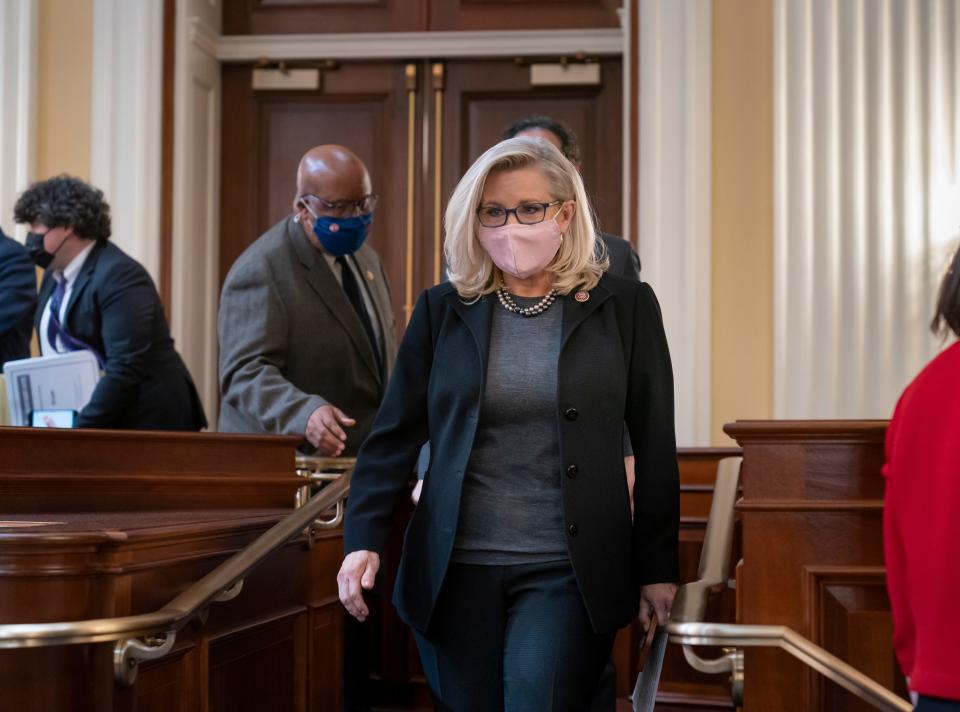House Jan. 6 panel has interviewed 250 people and is planning weeks of public hearings next year
WASHINGTON – The House committee investigating the Jan. 6 Capitol insurrection has interviewed 250 people and plans weeks of hearings next year about what lawmakers have found.
The announcements came at a Rules Committee hearing Thursday, where lawmakers debated a measure to find former Justice Department official Jeffrey Clark in contempt for defying a subpoena. The committee is postponing a decision until Clark meets Saturday with the investigative committee.
The investigative panel’s chairman, Rep. Bennie Thompson, D-Miss., said 250 people have cooperated with committee either voluntarily or under subpoena. The cooperation has come despite the high-profile defiance of witnesses such as Clark and former President Donald Trump’s political strategist Steve Bannon.
"All of the attention is going to a handful of cases of people who are in absolute, glorious violation of the law, according to committee, like Steve Bannon or in case Mr. Clark," said Rep. Jamie Raskin, D-Md., a constitutional scholar on the Rules Committee. "But the vast majority of the people are cooperating, is that right?"
"That's correct," Thompson said.

Bannon has been indicted for criminal contempt of Congress, a charge he vowed to fight. Trump is fighting a subpoena at the D.C. Circuit Court of Appeals for administration records from the National Archives and Records Administration.
But former Acting Attorney General Jeffrey Rosen and former Deputy Attorney General Richard Donoghue, who were appointed by Trump and who were Clark's superiors at the department, have cooperated and testified for hours without subpoenas.
The committee is investigating what happened on Jan. 6 and what led to a mob attacking the Capitol. About 140 police officers were injured in the siege and police shot one woman to death outside the House chamber.
More: Timeline: How the storming of the U.S. Capitol unfolded on Jan. 6
The top Republican on the investigative panel, Rep. Liz Cheney of Wyoming, said the committee plans weeks of hearings on what lawmakers find.
"We anticipate that next year we will be conducting multiple weeks of public hearings, setting out for the American people in vivid color exactly what happened every minute of the day on Jan. 6 at the Capitol and at the White House, and what led to that violent attack," Cheney said.
The committee has focused on Clark because lawmakers said he appeared to be at the center of Trump’s attempts to overturn the 2020 election, according to a Senate Judiciary Committee report.

Trump tried to appoint Clark acting attorney general to send letters to state officials questioning the legitimacy of the election, but Trump was thwarted by top department officials threatening to resign if he went forward, Cheney said.
"What we saw in the report was the politicalization of the Justice Department to the point that it would be weaponized against its own citizens for a particular political reason," Thompson said.
Clark has declined to answer questions so far under claims of executive privilege and attorney-client privilege. His lawyer notified the investigative committee he will plead his Fifth Amendment right against self-incrimination when he appears for a deposition Saturday.
Cheney said if Clark invokes the Fifth Amendment, it's "apparently because he believes testimony about his interactions with President Trump would tend to incriminate him and thus may subject him to criminal prosecution. We will depose Mr. Clark on Saturday and at that point we will know exactly what testimony Clark believes may incriminate him."
This article originally appeared on USA TODAY: House Jan. 6 probe plans weeks of hearings, has interviewed 250 people

 Yahoo Movies
Yahoo Movies 